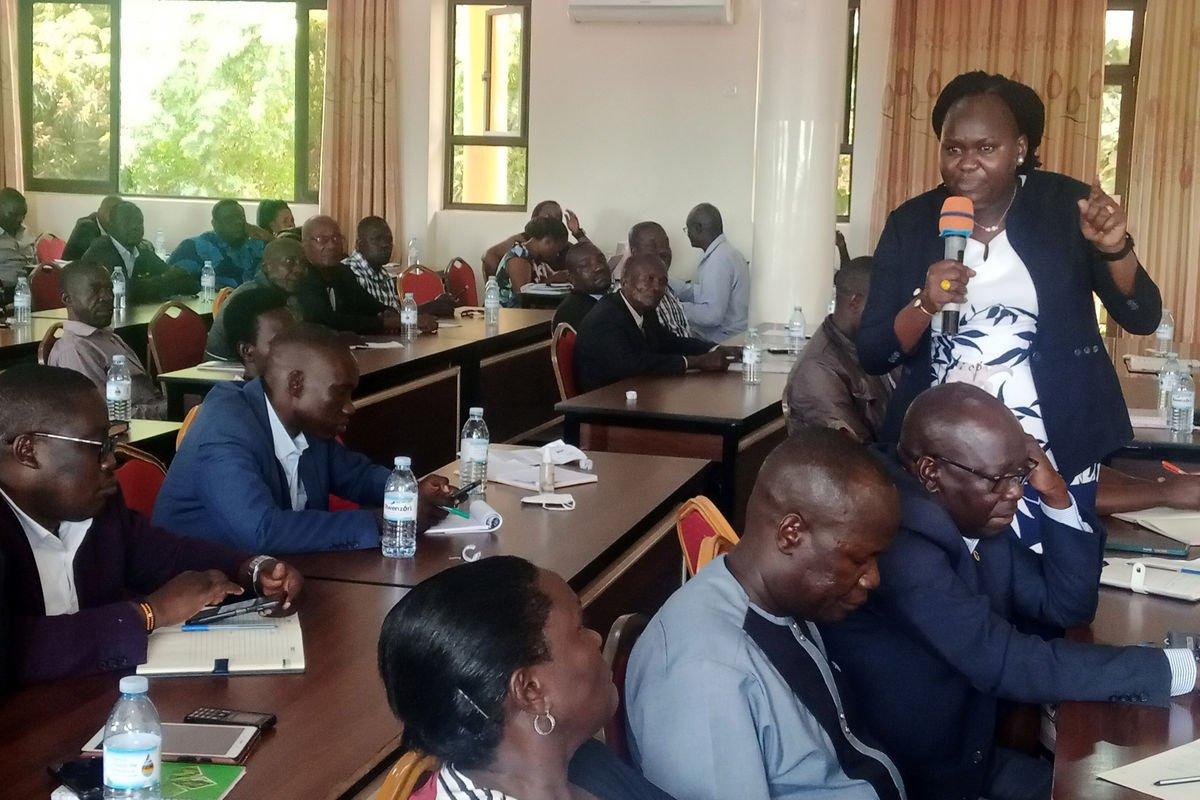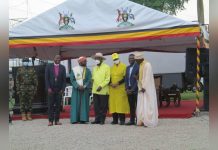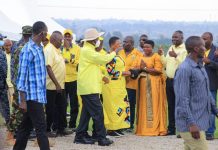Africa-Press – Uganda. The government has embarked on using enterprise-based approach to conserve the environment in northern and eastern Uganda.
With funding from the World Bank, this intervention is expected to generate colossal return on investment while at the same time promoting environmental protection and restoration.
Components of the programme include soil and water conservation, eco-system protection and restoration.
The implementation of the integrated water management and development project (IWMDP) is fully integrated within the government structure.
Thus, the water resources management component of the project is implemented by the Directorate of Water Resources Management through its various departments and the relevant Water Management Zones.
Project aim
Mr Robert Bogere, a senior water officer at the Ministry of Water and Environment, told Daily Monitor at the project inception meeting in Lira City on Tuesday: “The project is looking at restoring the degraded ecosystems, including wetlands, river banks and deforested landscapes.”
Mr Bogere said each sub-catchment will have roughly 500 hectares of degraded wetlands and about 480 kilometres of river banks on both sides restored.
Degraded farmland will also be restored.
“So, we are bringing in water conservation measures that aim at promoting infiltration into the ground such that when it rains, we have much of the runoff entering into the soil than having it running away as surface runoff – the flash floods – which are disturbing the communities,” the senior water officer explained.
Mr Charles Ichogor, the Gulu Resident District Commissioner (RDC), said if the project is successfully implemented, Uganda will indeed qualify to be called the Pearl of Africa.
“This country is in jeopardy. The biodiversity of this nation is bleeding and we are seated on a time bomb. So, we must all mobilise our civilisation to reverse the trend,” he said.
Rev Felix Ogwang Ocen, the Archdeacon of Otwal in Oyam District, said: “If we want to fight the problem that we have caused, we need to change our mindset and work as a team.”
Mr Edward Martin Rwarinda, the acting assistant commissioner in-charge of the Compliance and Enforcement Division, Ministry of Water and Environment, noted that this project is in line with what the government is promoting under the Parish Development Model (PDM).
Officially launched by the government in February, PDM aims to lift 17.5 million Ugandans in 3.5 million households out of poverty through the transformation of the subsistence households into the money economy.
It has seven pillars: agricultural value-chain development, infrastructure and economic services, financial inclusion, social services, community mobilisation and mindset change, parish-based management information system and governance and administration.
“So, the approach we are using is that although the degradation has taken place, the culprits have to be convinced by being given alternative livelihood in form of income-generating activities so that they are convinced to move out of the degraded catchments or sub-catchments,” Mr Rwarinda said.
Ms Caroline Angolere, the Kole RDC, said: “I am very impressed with the project. The project seems to have intentions to address the core problem in the communities.”
However, she warned that the PDM will not succeed if the environment is not conserved.
“I was also made to understand that the natural resource department of the district receives a very small funding, [and] that is why it becomes very difficult for them to map and demarcate these wetlands,” Ms Angolere said, noting that there are factors that push farmers to cultivate in the wetlands.
“We have issues of lack of awareness and land wrangles in the communities. There are clan leaders who have grabbed land from the community and so the community needs to cultivate; they become desperate and use the wetlands, to some extent,” she added.
Mr Richard Cox Okello Orik, the Lira District chairperson, said population growth has resulted in degradation of the environment.
“I’m so happy to note that while we are going to tell people to get out of wetlands, people will be given some alternative livelihood and I believe the project will help a lot in conserving the environment,” he said.
Encroachment on wetlands
Encroachment on wetlands is rampant in Lango Sub-region, with large tracts of wetlands used for growing rice, maize and beans, among others, especially during dry season, according to Mr Charles Dicken Langoya, a consultant.
In the implementation of IWMDP, Mr Langoya said the International Union for Conservation of Nature, the contractor, will follow President Museveni’s principle that “it’s no longer business as usual. It’s going to be an enterprise-based approach that supports conservation and still makes money.”
About the project
The two-year intervention provides support to catchment management and activities in sub-catchments of Lwakhakha (Mpologoma catchment), Lake Okolitorom and Apeduru Apapai (Awoja catchment), Kochi (Albert Nile catchment), and Aswa II (Aswa catchment).
It further targets livelihood improvement for the affected communities, supporting stakeholder engagement and the establishment of micro catchment structures for sustainable management of the interventions.
For More News And Analysis About Uganda Follow Africa-Press






